Fury in Belgrade as iconic Hotel Yugoslavia to be demolished
It was a five-star hotel boasting one of the biggest chandeliers in the world made of 40,000 Swarovski crystals
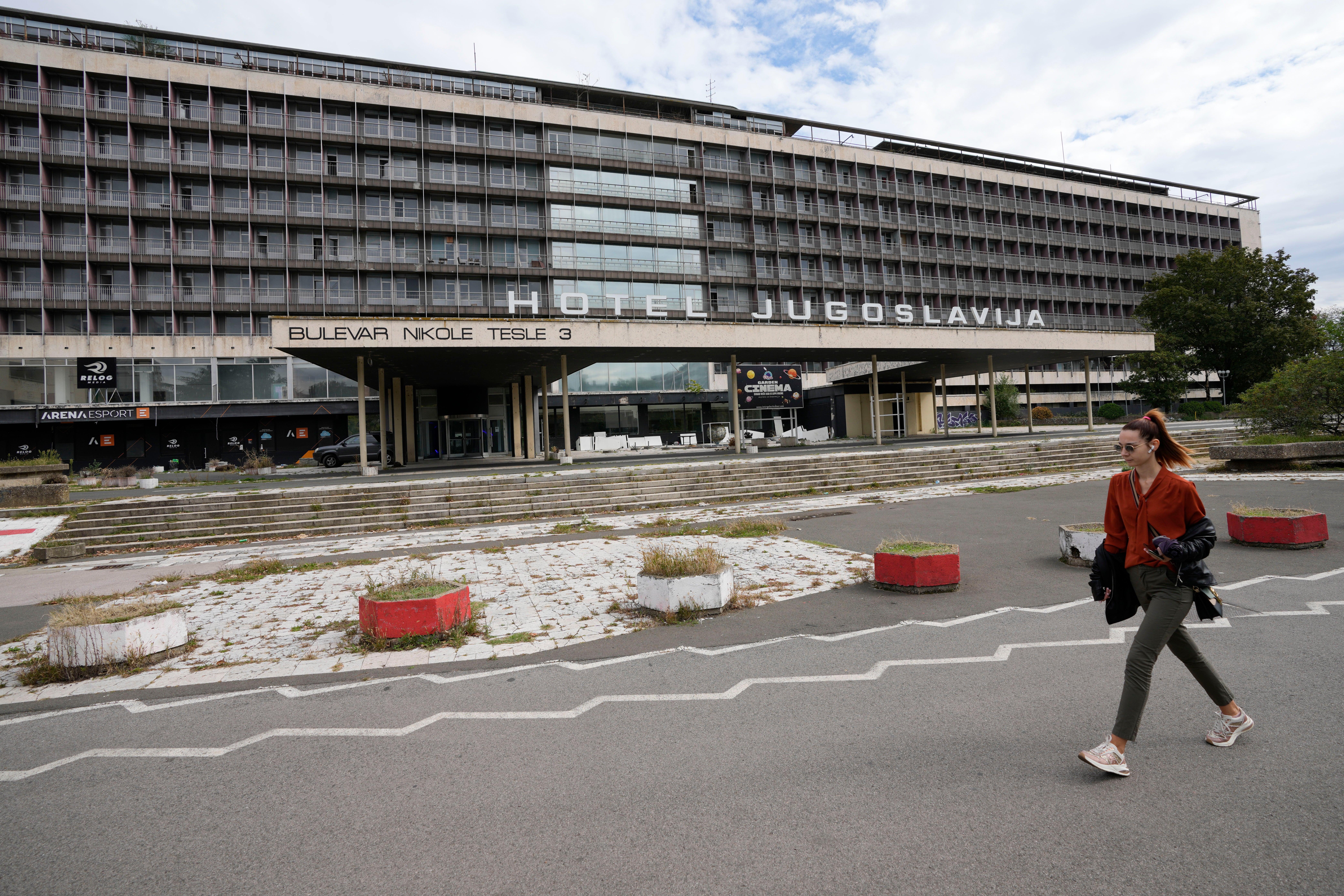
Your support helps us to tell the story
From reproductive rights to climate change to Big Tech, The Independent is on the ground when the story is developing. Whether it's investigating the financials of Elon Musk's pro-Trump PAC or producing our latest documentary, 'The A Word', which shines a light on the American women fighting for reproductive rights, we know how important it is to parse out the facts from the messaging.
At such a critical moment in US history, we need reporters on the ground. Your donation allows us to keep sending journalists to speak to both sides of the story.
The Independent is trusted by Americans across the entire political spectrum. And unlike many other quality news outlets, we choose not to lock Americans out of our reporting and analysis with paywalls. We believe quality journalism should be available to everyone, paid for by those who can afford it.
Your support makes all the difference.An iconic Belgrade Hotel is set to be demolished, despite anger from locals
Hotel Yugoslavia, once a symbol of progress in the former socialist state of Yugoslavia that broke apart in the 1990s and a favorite gathering place for local residents as well as world leaders, now stands in eerie silence awaiting its likely demolition.
In its heyday it was a five-star hotel boasting one of the biggest chandeliers in the world made of 40,000 Swarovski crystals and 5,000 bulbs.
Its guest list included Queen Elizabeth II, United States Presidents Richard Nixon and Jimmy Carter, astronauts including Neil Armstrong, and Belgian and Dutch royals.
The once-bustling landmark — a leading example of modernist architecture when it was built in the 1960s — has fallen into disrepair, its future clouded by debates over its historical significance and the push for advanced development.
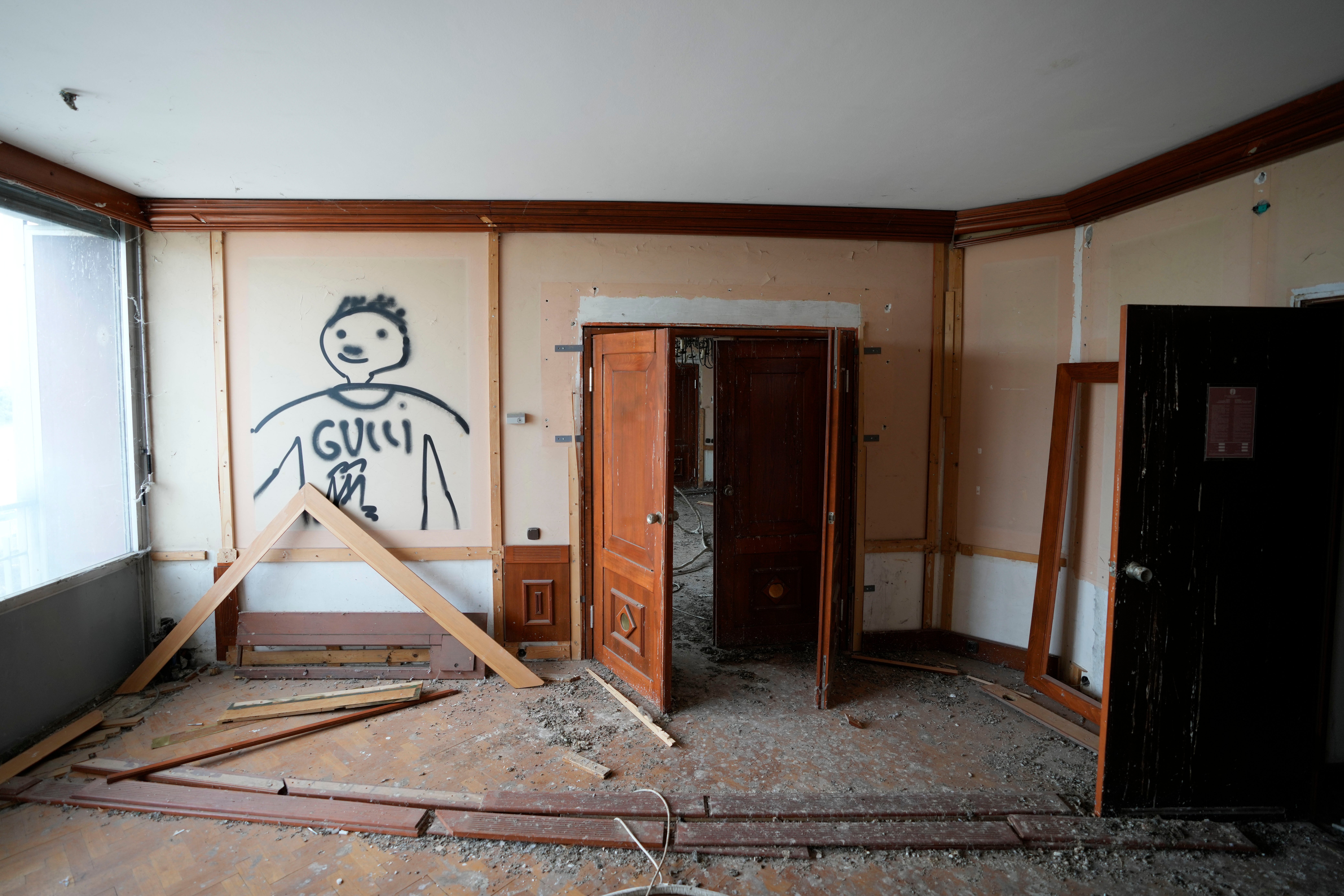
Its white facade, once polished and welcoming, is marred by crumbling concrete and graffiti. Inside, debris litters once-pristine red carpeted floors, while scattered pieces of broken furniture hint at the opulence that once filled its rooms and lobbies: Faded velvet armchairs, torn bed mattresses, sagging curtains and broken windows are all that remain of the luxury that once was. The wood-paneled presidential suite where top dignitaries would stay is now home to pigeons that fly in through the shattered glass.
As the Serbian capital grapples with hectic growth and new high-rises that dot its skyline, the almost certain fate of the hotel has sparked controversy, with some seeing it as a relic worth preserving and others envisioning new possibilities rising from its ruins.
The hotel, with a spectacular view of the Danube River in the capital's New Belgrade district, was damaged in NATO bombing in 1999 in an armed intervention over Serbia’s bloody crackdown on Kosovo Albanian separatists.
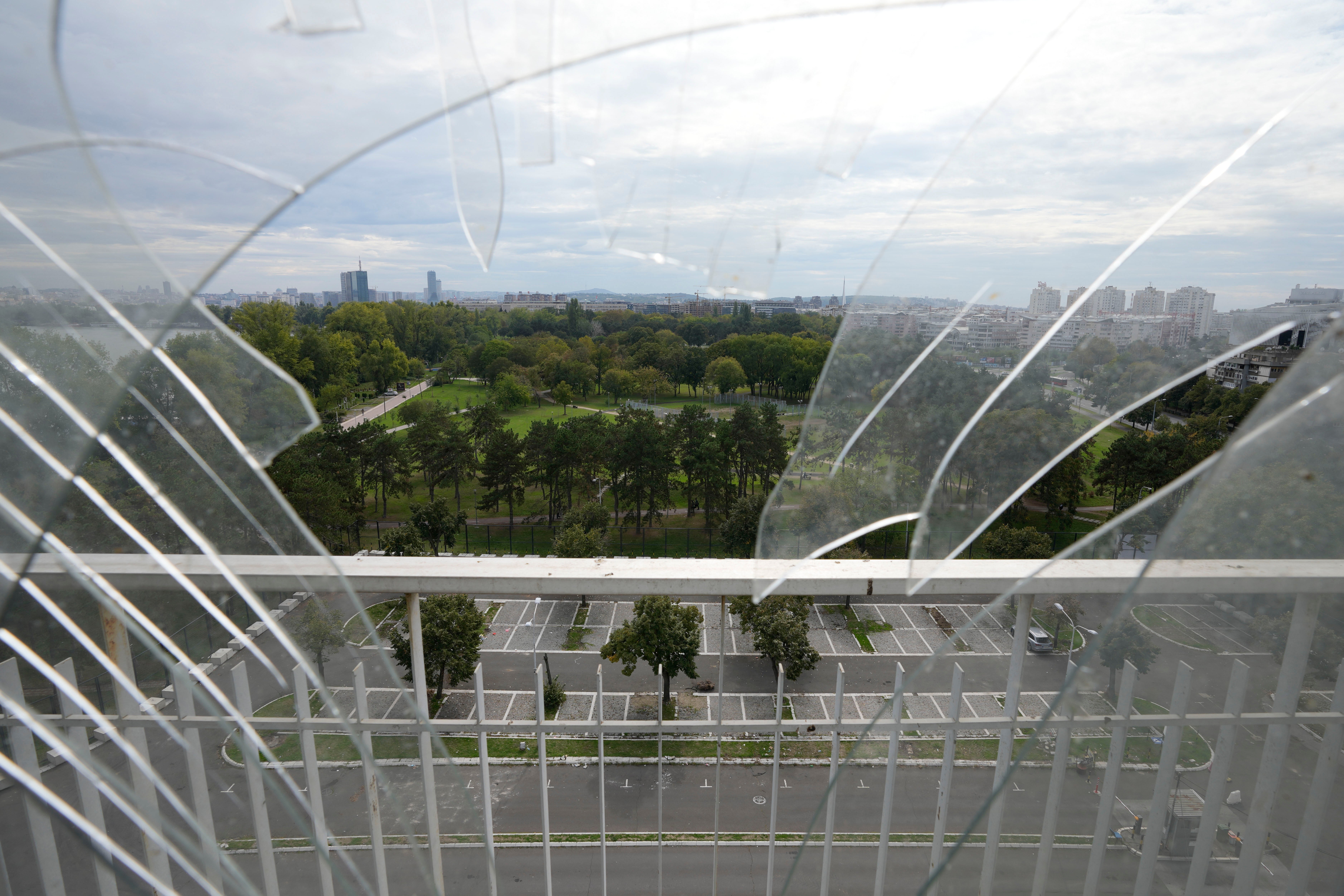
Only parts of the hotel were fully renovated, and it kept receiving guests until a few months ago, when private investors announced plans to demolish the structure and build a new one in its place. Two 150-meter (500-foot) -tall towers containing a luxury hotel, offices and private apartments will be built, according to the new owners.
Asked why the landmark hotel needs to be completely destroyed instead of incorporated into the new project, Zivorad Vasic, a spokesperson for the investors, said there were several reasons.
"One is during the bombing in 1999, quite a lot of parts of the hotel were destroyed. Second, the hospitality industry completely and tremendously changed. When you look at hotels now and how they looked before, they were completely different,” he said.
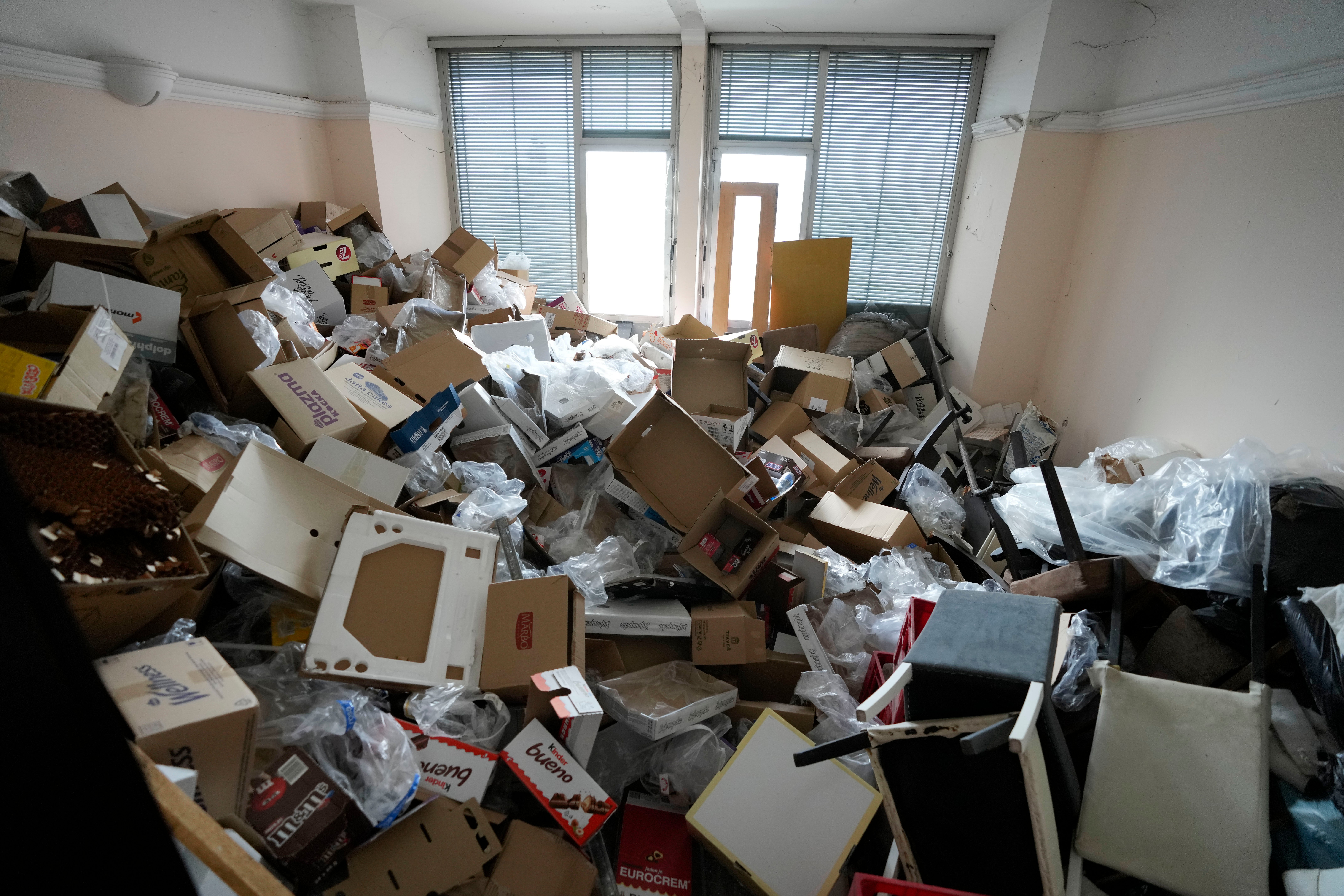
Architect and tourist guide Matija Zlatanovic, who often takes tourists to the hotel to explain its rich history, said the plans for the new hotel are “quite controversial," especially because “there are valid concerns about the size of the buildings that are going to be erected here.”
“It follows the trend of towerization of Belgrade and the erection of enormous high rises all over," he said. “And we yet have to see about the impact that they’re going to have on this neighborhood.”
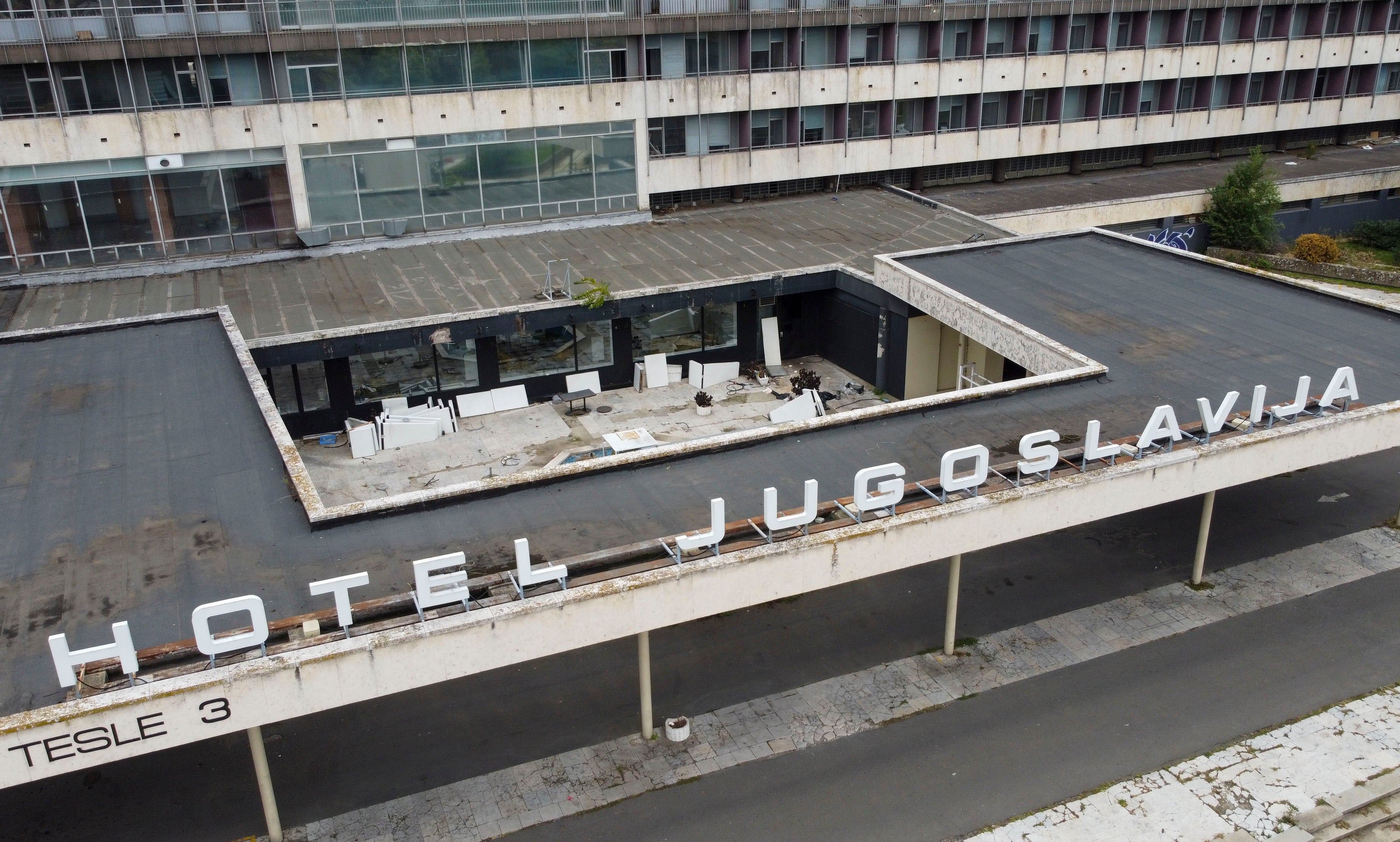
Neighbours who face living in the future shadows of the planned skyscrapers are not happy. Some are holding weekly protests against the new project, saying they will stop the demolition with their bodies if necessary.
Svetlana Gojun, one of the protesters, said Hotel Yugoslavia “represents a huge part of our history.”
“Half the world came to this hotel, from actors, musicians, politicians, writers,” she said. “Everyone is tied to this hotel. The whole world knows about that hotel. And now we will allow something like that to disappear?”

Earlier this year it was announced that Donald Trump’s son-in-law Jared Kushner has been given approval to build a $500m luxury hotel on a former defense ministry site in Belgrade.
The deal, announced by the Serbian government, will see the bombed-out site of the former Yugoslav Ministry of Defense, transformed into a hotel complex.
Bombs were dropped on the site in 1999 by NATO forces, backed by the US, during the Serbia-Kosovo war.